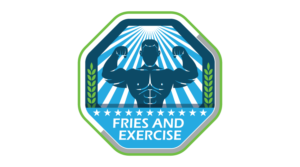Chronic illnesses are long-term health conditions that often require continuous management and treatment. Conditions such as diabetes, arthritis, cardiovascular diseases, and respiratory disorders can significantly impact daily life. For individuals living with these illnesses, maintaining independence and achieving a good quality of life often requires ongoing medical support.
The Role of Medical Equipment in Managing Chronic Illness
Medical equipment plays a crucial role in the management of chronic illnesses. Devices such as blood pressure monitors, glucose meters, and oxygen concentrators help patients monitor their health effectively at home. These tools empower individuals to track vital signs, adhere to treatment plans, and identify potential health issues early.
Enhancing Mobility and Independence
Many chronic illnesses, such as arthritis or multiple sclerosis, can limit mobility. Mobility aids, including wheelchairs, walkers, and stair lifts, are essential for maintaining independence. These devices not only facilitate movement but also reduce the risk of falls and injuries, enabling patients to lead active lives.
Pain Management with Advanced Equipment
For patients with chronic pain conditions, medical equipment can provide significant relief. Devices such as transcutaneous electrical nerve stimulation (TENS) units and heat therapy pads offer non-invasive options to manage pain. These tools allow patients to minimize reliance on medication and enhance their overall comfort.
Improving Respiratory Health
Respiratory disorders like chronic obstructive pulmonary disease (COPD) often require specialized medical equipment. Devices such as nebulizers, CPAP machines, and portable oxygen concentrators are indispensable for maintaining optimal respiratory function. These tools ensure that patients receive the oxygen they need, improving energy levels and overall well-being.
Facilitating Remote Health Monitoring
Advances in medical technology have made remote health monitoring more accessible. Wearable devices and telemedicine-compatible equipment enable healthcare providers to monitor patients’ conditions in real-time. This ensures timely interventions and reduces the need for frequent hospital visits, especially for those with limited mobility.
Supporting Mental Health and Emotional Well-being
Chronic illness can take a toll on mental health. Stress, anxiety, and depression are common among patients. Medical equipment like light therapy lamps for seasonal affective disorder (SAD) and biofeedback devices can help alleviate these symptoms. Additionally, having the right medical tools at home can reduce anxiety about managing the illness, fostering a sense of control.
Customizable Equipment for Individual Needs
One of the advantages of modern medical equipment is its adaptability to individual needs. From adjustable hospital beds to customizable orthotics, these devices cater to specific conditions and preferences. Such personalization enhances comfort and functionality, making everyday tasks more manageable.
Promoting Long-Term Health and Prevention
Regular use of medical equipment can also play a preventive role in chronic illness management. For instance, continuous glucose monitoring systems help prevent complications in diabetic patients, while blood pressure cuffs can alert users to hypertension risks. These tools contribute to better long-term health outcomes.
Conclusion
Medical equipment is a vital lifeline for individuals managing chronic illnesses. From enhancing mobility to improving respiratory health and facilitating remote monitoring, these tools significantly improve the quality of life. By addressing both physical and emotional needs, they empower patients to lead healthier and more independent lives. To learn more about how medical equipment can support chronic illness management, visit primehealers.com.
